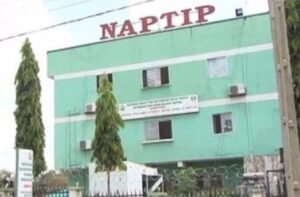The Petroleum and Natural Gas Senior Staff Association of Nigeria (PENGASSAN) and the Nigeria Union of Petroleum and Natural Gas Workers (NUPENG) have strongly opposed the Federal Government’s reported plans to divest significant stakes in joint venture assets managed by the Nigerian National Petroleum Company Limited, NNPCL.
PENGASSAN and NUPENG on Tuesday warned that such moves could destabilize the economy, weaken the oil industry, and jeopardize the welfare of workers.
At a joint press briefing in Abuja, PENGASSAN President Festus Osifo and his NUPENG counterpart, Williams Akporeha, rejected a proposal to reduce government holdings in JV assets by up to 30-35 percent.
Currently, the Federal Government owns between 55 and 60% of such properties through NNPCL.
According to the unions, the planned sale will provide immediate liquidity but at the expense of Nigeria’s long-term economic security.
They warned that lowering the government’s stake in important oil assets might bankrupt NNPC, hinder its capacity to perform obligations like paying salaries and welfare packages, and reduce its contributions to the national budget.
“The government wants to reduce its stake in these assets. In some cases, they are talking of selling up to 35 percent. But we say no.
“You cannot mortgage the future of Nigerians for temporary gains,” Osifo declared.
The controversy stems from President Bola Tinubu’s instruction last month to examine the NNPC’s 30% management charge and 30% frontier exploration deduction under the Petroleum Industry Act.
Tinubu, in a message to the Economic Management Team, led by Finance Minister Wale Edun, emphasized the importance of optimizing government savings, streamlining Federation Account deductions, and improving fiscal discipline in an era of global financial distress.
However, oil unions argued the administration’s latest policy actions, including talk of changing the PIA, might increase uncertainty in a sector that only recently received a thorough reform law after decades of delays.
Osifo cautioned that additional divestment would damage NNPC’s ability to continue operations. He cited past divestments by multinational oil companies such as ENI’s Agip subsidiary, ExxonMobil, and Shell, which sold their Nigerian assets to domestic firms like Oando and Seplat.
“The NNPCL manages JV assets on behalf of the Federation. Every oil well belongs to the Nigerian people collectively, not just the Federal Government. If these stakes are sold, the federation loses, and the national oil company will be too weak to deliver,” he argued.
The unions also accused the Ministry of Finance of wanting to remove the Ministry of Petroleum from NNPC’s shared ownership, describing the action as a backdoor hijack of the corporation.
They contended that the proposed revisions would deprive NNPC of its primary national mission, deter investors, and convey negative signals about Nigeria’s policy consistency.
“The PIA was passed after years of struggle. Investors are just beginning to adapt to it. Now, the government wants to amend it again? That is a dangerous signal,” Akporeha said. According to him, every serious oil-producing nation protects its national oil company. “Here, we are doing the opposite, stripping ours of its strength,” he added.
PENGASSAN and NUPENG demanded that Tinubu personally stop the divestment plan and rein in officials pushing for changes. They specifically urged him to call the Minister of Finance, the NNPCL Board Chairman, and the Group Chief Executive Officer of NNPCL to order.
“If these proposals succeed, Nigeria will struggle to generate the revenue required to fund its budget. This is a recipe for crisis, and we will resist it,” Osifo maintained.
While the unions stopped short of announcing a strike, they issued a strong warning that they would “fight with everything” to prevent the sale.
“Whoever mooted this idea, whether from the Ministry of Petroleum, Ministry of Finance, NNPCL, or even the Presidency itself, we reject it 100 percent. It will make NNPCL bankrupt in a few years. We will not allow that to happen,” Osifo insisted.
Akporeha also criticized the government’s inconsistency, noting that the PIA, enacted barely three years ago, had not been given enough time to stabilize before fresh amendments were being considered.
“When laws are inconsistent, they scare away investment. The investors are just beginning to understand the PIA, and suddenly the government wants to change it again,” he said.
The oil unions’ rejection adds another layer of strain to the government’s economic reform efforts.
While the administration seeks quick fixes to alleviate economic difficulties, organized labor maintains that abandoning important national oil assets would jeopardize the country’s future.
Both PENGASSAN and NUPENG have asked Tinubu to prioritize national interests over short-term advantages, saying that any move to weaken NNPCL might undermine Nigeria’s economic base and spark industrial unrest.








